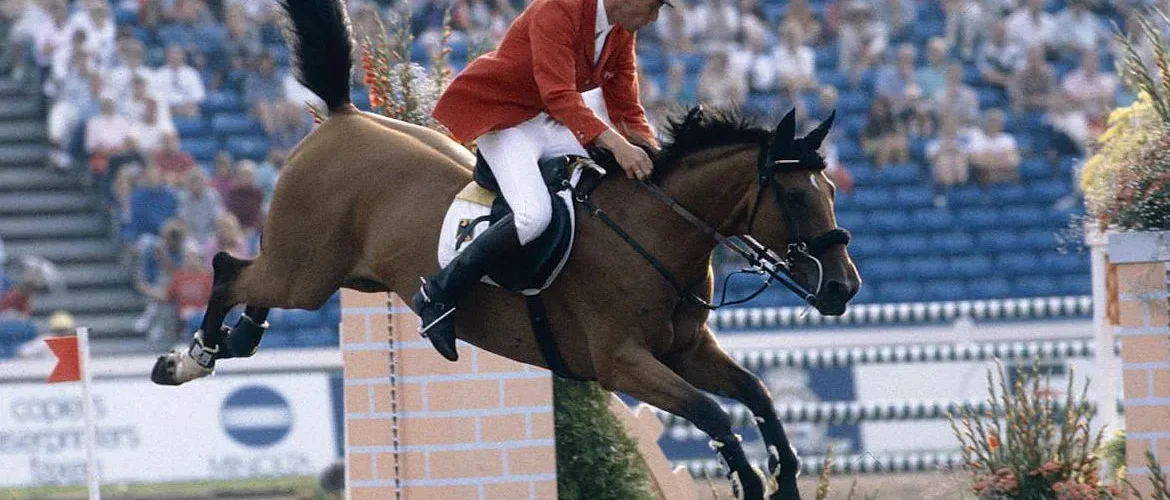Horse cloning has sparked controversies and deep debates since 2003, when ‘Prometea’, the first cloned horse, was born. At Ovohorse & Ovoclone, we have been committed for years to technological and scientific advancement in this field, and we currently have the most innovative techniques to safeguard the genetic legacy of animals. By preserving your horse’s cell line, you can overcome future setbacks that would be irreversible without this procedure.
2012 cambió la competición hípica olímpica
Eight years after ‘Prometea,’ equestrianism changed forever: the International Equestrian Federation lifted the ban that previously prevented clones from participating in the Olympic Games, which were held in London that year. “It’s an unfair advantage,” said the organization before, but after continuously analyzing these cloned horses, they found that the genetic information is almost identical at 99.9%.
Although it is now allowed, to this day, no cloned horse has participated in the Olympic competition, though they have competed at similar levels, such as ‘Otterongo Alpha Z,’ a clone of the well-known ‘Otterongo van de Kopshoeve.’ The clone has accumulated numerous participations and victories in 5-star Grand Prix events at 1.55 m heights with his rider, Christian Ahlmann, and is currently one of the best horses in the international show jumping scene.
Chellano Alpha z
Chellano Alpha Z, a clone of Chellano Z, was born in 2008. His owners sought to replicate the excellence of the original horse, which stood out not only in sports, competing at 1.60m, but also as a breeder, as he currently has 35 approved stallions and numerous offspring competing at the highest level. However, the clone has been less used as a stallion. Still, it has 6 approved stallions and multiple offspring competing in ranking events, including ‘Cosmos BH’ and ‘Chelsea Z,’ both jumping 1.60m events.
Unfortunately, Chellano Alpha Z passed away in 2011 due to colic, a common affliction in the equestrian world.
Ratina Z y sus clones
“Ratina Z,” the daughter of the legendary Ramiro Z and a direct daughter of Alme, has been one of the best mares in the history of show jumping. She was an Olympic medalist with Piet Raijmakers at the 1992 Barcelona Olympics, winning team gold and individual silver.
Later, with Ludger Beerbaum, she qualified again for the Games, this time in 1996 in Atlanta. She repeated the team gold and also won individual gold. Additionally, she competed and won the team gold at the 1994 World Equestrian Games. She was World Champion at the 1993 World Cup Final, named Horse of the Year in 1997, and had many other accolades. Due to her remarkable sporting career, ‘Ratina Z’ did not have many descendants. As a result, she was cloned several times. The fruits of these births were ‘Ratina Alpha Z,’ ‘Ratina Beta Z,’ ‘Ratina Gamma Z,’ and ‘Ratina Delta Z,’ which are mostly dedicated to breeding. ‘Ratina Delta Z’ also competes on international stages, being the last clone of ‘Ratina Z.’ Genetically and visually, they are identical, and their jumping style confirms this. Thanks to this, it is now possible to continue producing great offspring from this legendary mare in the history of show jumping.
Cuartetera y sus clones
There are also such cases in polo, where Adolfo Cambiaso, one of the best in the world in this sport, demonstrated that the clones of ‘Cuartetera,’ which number more than 20, compete at the same level as the ‘original’ mare. Notably, ‘Clon 09’ – the name given to clones in polo – matched ‘Cuartetera,’ who was also the best at the Argentine Open in Palermo three times (2017, 2018, and 2020) alongside Adolfo Cambiaso.
TAMARILLO Y SUS CLONES
Another example is ‘Tomatillo,’ a clone of the famous ‘Tamarillo,’ an eventing horse whose owner admitted that it acted very similarly to its progenitor. Due to the impressive results ‘Tamarillo’ achieved in his sporting career, this horse was cloned and destined for both competition and breeding, making it possible today to have offspring of the ‘original’ through his clone.
It is now possible to see the fruits of equine cloning in both the competitive and reproductive fields. Although this technique is constantly evolving, at Ovohorse & Ovoclone, our main focus is animal welfare and scientific progress in this field, so you can have clones in the stable of your star horse.

